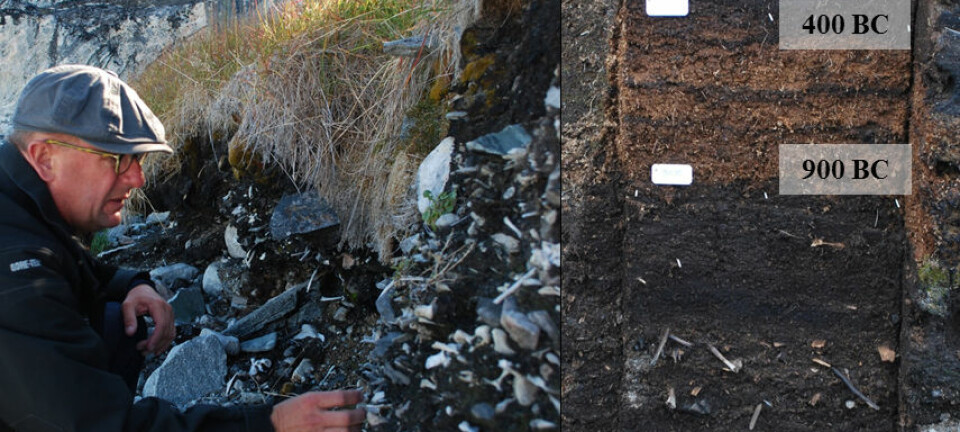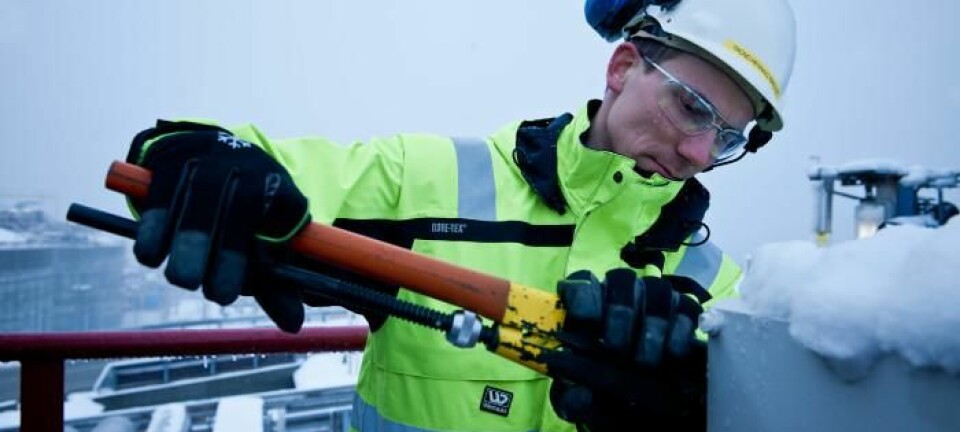
Climate change will make us sweat more and work less
Rising temperatures due to climate change will make us lazier and decrease productivity. It will hit GDP hard, say scientists.
Climate change is not just a problem for ecosystems on the planet—high temperatures will also affect the work place.
In fact, heat is going to be a problem at so many work places that companies will face declines in efficiency and hence it will influence economic earnings as well.
This applies not only to countries already plagued by extreme heat, such as Spain and Greece, or the American southern states, but also to countries in northern Europe.
So says Professor Lars Nybo from the Department of Sport and Nutrition at the University of Copenhagen, Denmark.
He is head of a large EU research project “HEAT-SHIELD,” which aims to map the negative impacts of global temperature rise on manufacturing, construction, transportation, tourism, and agriculture.
“When we talk about climate change, the focus is often on the “green” aspect of what will happen in the future. But if you want politicians and others with influence to do something about the problem of increasing temperatures, then you also need to [understand] the economic aspects. This is what our research focuses on and our initial results show that climate change could cost up to 25 per cent of some company’s productivity. We’ll feel that,” says Nybo.
Nybo and colleagues have written an editorial in the scientific journal, Temperature, where they outline the direction of research needed to understand the economic impacts of climate change.
It will be expensive to do nothing
Earlier estimates suggest that the global temperature increase will result in a decline in production of between one and two per cent. But these estimates were too conservative, according to Nybo.
According to mathematical models developed by scientists at the University of Copenhagen, the productivity of five types of industry will decrease by five to ten per cent.
These figures assume that the goal of the Paris Agreement—to halt global warming at two degrees and preferably closer to 1.5 degrees—is successful. If this does not happen, then the effects on productivity will be even bigger.
“It’s paradoxical when, for example, Donald Trump says that it’s too expensive to do something about climate change, when we see that it’s going to be too expensive if we don’t face the problems. Switching to greener sustainable solutions may require an investment, but there’s clear economical incitements in the long run,” says Nybo.
Practically impossible to work outdoors
Nybo’s editorial highlights one dimension of climate change that is often overlooked by many people but will have huge importance, says climate scientist Jens Hesselbjerg Christensen, Professor at the Niels Bohr Institute at the University of Copenhagen, and one of the lead authors on the UN’s International Panel on Climate Change report.
“This is a relatively big [deal] that has a direct effect on how business or countries need to relate to climate change. It also shows that climate change impacts everything and that we cannot afford to be unprepared for how differently things will look in the future,” says Christensen.
The economic consequences of climate change are clear, and you do not need mathematical models to see them, he says.
“When it gets warmer, people cannot work as much. Take, for example, the Middle East. Many places are so warm now that it’s practically speaking, impossible to work outdoors by the middle of the day. Indoor work is only possible in buildings with air conditioning. Today, you can make a map of the world and see how climate change will have similar consequences in the future. This will hit Southern Europe hard, but [Northern Europe] will also be hit,” says Christensen.
Many industries will be affected
According to Nybo, recently published results from HEAT-SHIELD show that agricultural workers in Cyprus take longer and more frequent breaks when the environmental temperature rise.
At 35 degrees Celsius, their working hours decreased by 25 per cent compared with temperatures below 25 degrees.
According to Nybo, the hardest hit will be industries involving outdoor manual work or indoor work with only limited ability to provide sufficient air conditioning.
“In the EU, these kinds of companies make up to 40 to 50 per cent of both the workforce and gross domestic product. If productivity in these sectors fall by five per cent it will [have a big impact] on these countries’ economies,” says Nybo.
The studies have also shown that more work-related accidents occur when temperatures increase.
“If you include disability, which follows from accidents and disease, then the effect on the economic bottom line becomes even bigger. Modern management at many companies luckily focuses on employee health as a value in itself, but the economic aspect will continue to weigh heavily,” says Nybo.
“It’s important to press this argument to the decision-makers when addressing the problem,” he says.
-----------------------
Read more in the Danish version of this story on Videnskab.dk
Translated by: Catherine Jex











